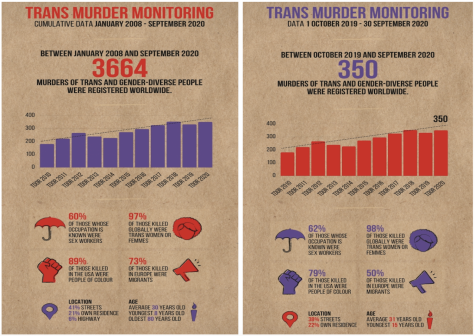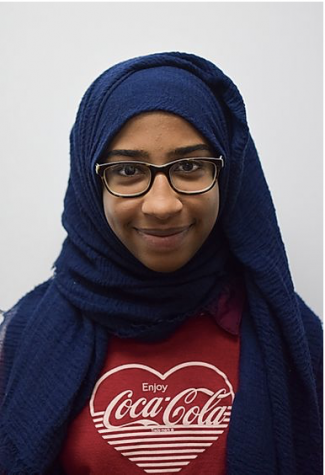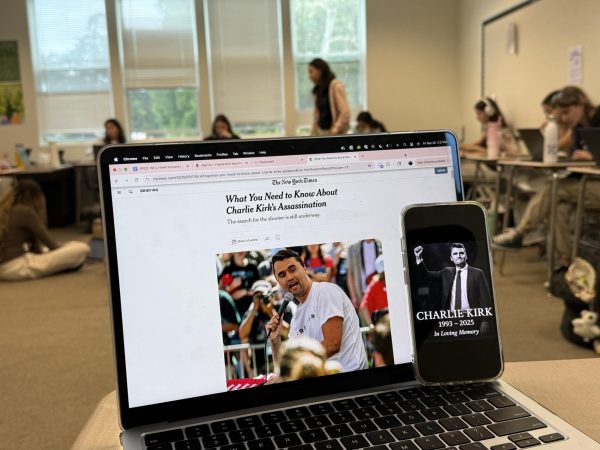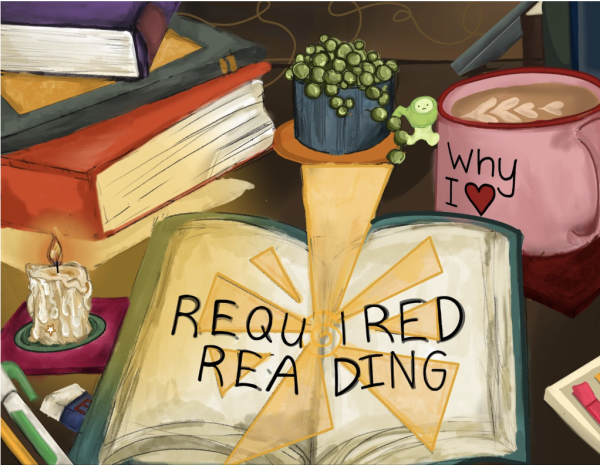Column: Transgender Day of Remembrance
TRIGGER WARNING: Violence and Transphobia
Transgender Day of Remembrance is a day to mourn and memorialize those killed in anti-transgender violence. It is held on the 20th of November, following transgender awareness week. It originally started in 1998 to honor Rita Hester. Many murders of transgender individuals remain unsolved. Although not every person represented during the Day of Remembrance used the label transgender, the victims were targeted due to anti-trans biases.
Over the last decade, more than one person per month has died due to transgender-based hate or prejudice, regardless of any other factors in their lives. There is a steady upward trend in the number of murders per year.
From the first of October 2020 to the 30th of September 2020, 350 trans and gender non-conforming people have been recognized as murder victims. This is a 6% increase from last year. 98% of those murdered were transfeminine; 62% were sex workers; 83% of the murders occurred in Central and South America (43% in Brazil alone). The average age of those killed is 31 years old with the youngest only being 15. 22 of the 28 trans victims in the US were POC.
This number is likely to be an underestimate as some countries don’t collect data and families, authorities, and media misgender transgender individuals. Many victims’ deaths might also go unreported.

But our 350 trans siblings murdered this year are not just names; they had friends and families, lives, and names. Below is a recording of the names of those lost this year.
If you would like to find out more about the victims, you can find the full list of names here. Be aware that causes of death are noted and in some cases are very graphically and brutally described.
Open letter to people who say, “you’re so brave:”
(written after transcribing the list of names of trans siblings lost this year)
I am not brave. Being born into a privileged, liberal family is not brave. Having parents who can be clueless on occasion but love me unconditionally is not brave. Using they/them pronouns and changing my name at a school even more liberal than my family is not brave. Speaking about my experience to open-minded, like-minded students is not brave. Living in a state that legally recognizes my gender is not brave. Living as myself is not brave. It takes confidence, but it’s not brave. Don’t call me brave.
Brave are the people around the world that say f***k it and come out and live their lives proudly despite their families, and communities, and friends, and society rejecting them. Brave are the people who know they will face violence and hate speech and assault and murder and transition anyway. Brave are the people who insist upon living as themselves no matter the consequences. Brave are the people who have the choice to pretend to be someone else and remain safe but say f***k that. Brave are the people that struggle against police brutality, and unequal medical care, and governments refusing to recognize who they are. They are strong, resilient people simply trying to survive swimming upstream in a world that despises them for simply existing. They are brave every day.
References:
https://transrespect.org/en/tmm-update-tdor-2020/




























![Dr. Zanita Kelly, Director of Lower and Middle School, pictured above, and the rest of Westridge Administration were instrumental to providing Westridge faculty and staff the support they needed after the Eaton fire. "[Teachers] are part of the community," said Dr. Kelly. "Just like our families and students."](https://westridgespyglass.org/wp-content/uploads/2025/03/dr.-kellyyy-1-e1748143600809.png)




























